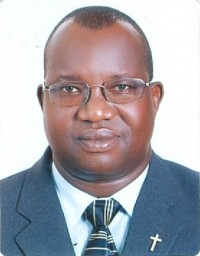Uganda president said: I’ll block ‘Kill the Gays’ bill
Colin Stewart is a 45-year journalism veteran. He is the…
(This is a republication of a blog post that first appeared in June 2012. Now that the Ugandan parliament appears poised to act on a harsh new anti-homosexuality proposal, let’s hope that the reported position of Ugandan President Yoweri Museveni was reported accurately then and remains the same today.)

Uganda’s president, Yoweri Museveni, says he will prevent that country’s proposed Anti-Homosexuality Bill from becoming law.
Museveni will block the enactment of the bill if it is passed by the parliament, he said in comments made in an unexpected context — an interview with a travel journalist.
He downplayed the controversy over the proposal, which would strengthen the country’s already strict laws against homosexual behavior.
“There’s a problem, because it seems some people in the West think that everybody’s ignorant except themselves,” he told Arnie Weissmann, editor-in-chief of Travel Weekly magazine. “For legislation to pass into law, I must sign it.”
The Anti-Homosexuality Bill, proposed by member of parliament David Bahati, would require citizens to report suspected homosexuals to police and, at least in an early version, would impose the death penalty for same-sex behavior, which earned it the nickname of the “Kill the Gays” bill.
Current laws in Uganda provide for prison sentences of seven years to life for homosexual activities.
But Museveni said there should be “no persecution, no discrimination, no killing” of gay people.

Despite those words from the country’s president, Uganda remains hostile to LGBT people. In February, Ugandan ethics minister Simon Lokodo and police broke up a gay rights workshop in Entebbe that he declared an “illegal assembly.”
In March, gay rights activists sued Lokodo. They said Lokodo’s disruption of the workshop violated their constitutionally guaranteed freedom of assembly.
More recently, Lokodo threatened legal action against a proposed conference in Uganda at which religious and political leaders would discuss the effects of the country’s laws against homosexuality.
In Museveni’s interview, he repeated his earlier comments about homosexuals in African history and the importance of privacy to Africans.
Some prominent chiefs in Uganda’s past were gay, he said.
“They were known, but they were not persecuted,” he said. “They were not killed. They were not discriminated against.”
But they also did not talk about their homosexuality, he said. As Weissman reported:
What happens in private, regardless of sexual orientation, is private, he said, but Western critics should respect that in Uganda, any public display of affection, gay or straight, would be offensive.
He is 67 years old, he said, and “I have never kissed my wife in public. Now, what are we to do about this? Will somebody come and say [I] must kiss in public? That’s not our culture. Because in our culture, anything to do with love is private, away from children, away from other people. Bilateral, between two people. ”
Museveni said he did feel it should be illegal to induce children into sexual activity, whether homosexual or heterosexual. “That’s the only possibility [for harsh punishment] we could be talking about,” he said.
Related articles
- How NOT to fight Uganda anti-gay bill (76crimes.com)
- Protest against Uganda’s anti-gay bill NOW (76crimes.com)
- Harsh new anti-gay moves in Nigeria, Uganda (76crimes.com)


